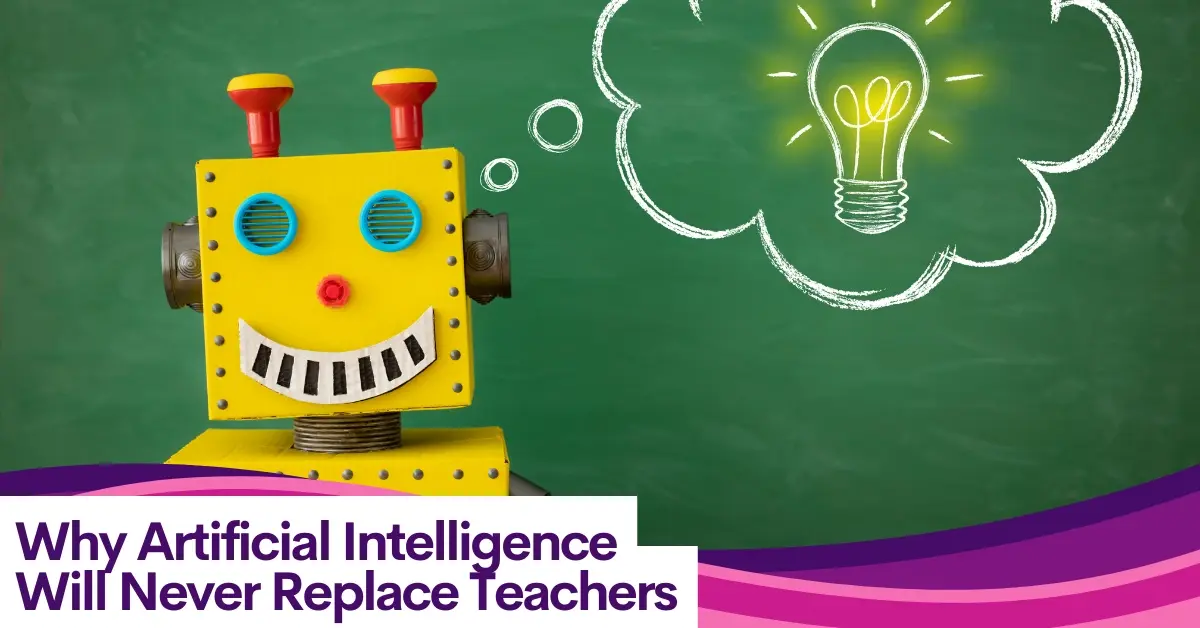
Why Artificial Intelligence Will Never Replace Teachers
In the ever-evolving landscape of education and childcare, the integration of artificial intelligence (AI) has been a topic of discussion and speculation. Some argue that AI could potentially replace teachers, particularly in roles like preschool teachers’ jobs and childcare workers. However, the human touch and unique qualities that educators bring to the table make it clear that AI can never fully replace the invaluable role teachers play in nurturing young minds.

Preschool Teachers Jobs: More Than Just Routine
Preschool teachers’ jobs are much more than just executing routine tasks. They are responsible for creating a safe and stimulating environment where young children can learn and grow. While AI can assist in some aspects of teaching, it lacks the emotional intelligence and interpersonal skills crucial in these roles. Preschool teachers provide personalized care and attention to each child, ensuring their needs and developmental milestones are met.
Childcare Workers: Nurturing Beyond Supervision
Childcare workers go beyond simple supervision; they are nurturing caregivers who foster the emotional and social development of children. AI might be capable of monitoring and ensuring safety, but it cannot replace the warmth and empathy a human caregiver brings to childcare jobs. The emotional connection and one-on-one interaction with children are aspects that AI simply cannot replicate.
The Limitations of Artificial Intelligence
Artificial intelligence may excel in specific tasks, such as data analysis and repetitive processes, but it falls short in several critical areas, particularly when it comes to education and childcare. Here are a few reasons why AI will never replace teachers in preschool and childcare settings:
- Emotional Connection:
Children need emotional support and human connection. Teachers and childcare workers provide not only education but also the comfort and security that children require. AI cannot replicate the depth of human interaction and emotional understanding. - Adaptability:
Teachers can adjust their teaching methods to cater to the unique learning styles and needs of individual students. AI algorithms cannot understand and adapt to the ever-changing requirements of young learners.
- Creativity and Critical Thinking:
Teachers encourage creativity and critical thinking, essential skills in the modern world. AI systems follow predefined algorithms and cannot inspire innovative thinking or encourage curiosity. - Ethical and Moral Guidance:
- Teachers also serve as role models, imparting ethical and moral values to their students. AI cannot provide the same level of guidance and understanding in moral and ethical matters.
- Problem-Solving and Complex Situations:
- Teachers often find themselves in complex situations that require nuanced decision-making and problem-solving. AI is limited to pre-programmed responses and cannot handle the unpredictability of real-world scenarios.
Preschool Teachers and Childcare Workers: The Human Difference
In the realm of preschool teachers’ jobs and childcare jobs, the human difference is irreplaceable. Teachers and caregivers offer more than just instruction and supervision; they provide love, empathy, understanding, and personal connection that children need for holistic development. AI can fully replicate the invaluable qualities that educators bring to these roles.
Conclusion
While AI may have its place in the educational and childcare sectors by assisting teachers and caregivers, it will never replace the essential human qualities that make these roles so vital. Preschool teachers’ jobs and childcare workers play a unique and irreplaceable role in shaping the future of our children, offering them not only knowledge but also the emotional support and guidance they need to thrive. The human touch will always be a critical component of these professions, ensuring children receive the care and education they deserve.

